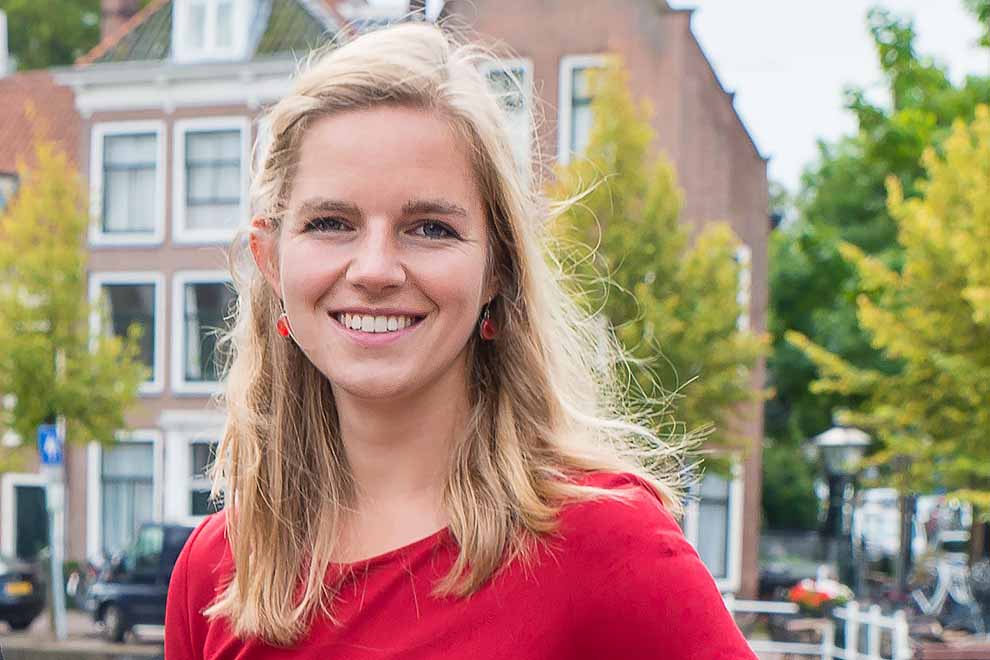E-health can keep healthcare accessible and affordable. Why are the applications still far from being accepted and widely implemented? In her doctoral research, Charlotte Poot exposes the stumbling blocks and offers solutions. She makes the link between e-health and digital skills. She will receive her PhD at Leiden University on February 1.
"Both the user experience and usability of e-health are currently not optimal," Charlotte Poot summarizes the core of her doctoral research. "Patients often don't find existing e-health applications very interesting. Take the apps where they have to fill out a questionnaire every day or every week. They like that for a while, because it's something new. But soon their attention wanes."
"Participatory design is therefore necessary. If you involve patients in an e-health application at the early design and development stage, you can find out their needs very well. And come up with applications that fascinate them and that they want to keep using. Think of 'persuasive games': apps with a game element that stimulates patients to use the app longer and encourages certain behaviors."
Promoting therapy adherence
As an example, Charlotte Poot mentions the persuasive game Breathmate. For her research, she tested a prototype of this game. The goal is to promote therapy compliance among asthmatics, and it turned out to work.
In the game, patients take care of the character Brad, who must reach a treasure within six weeks. If the patients use their smart inhaler faithfully, a bridge slowly goes down. This allows Brad to reach the treasure. If they don't use the inhaler, Brad eventually falls into the water. He ends up in respiratory distress, as do the asthma patients who did not use their inhaler as prescribed.
Limited digital skills
E-health applications can be creatively designed, but it is not a given that everyone will be able to use them. How should we deal with people who are not digitally health literate?
"Right now, we are betting on promoting those digital skills," Poot said. "That's important, of course, because there's a digital transition going on. At the same time, I think you have to design e-health applications in such a way that even people without many digital skills can get on with it. You do that by involving them in the development as well. Not at the university but simply in their own neighborhood."
Health Gap
"If we continue to do research with highly educated people who have good digital health skills and base our policies on that, of course, we're going to go massively wrong all together. Then the already existing health gap will only widen. So let's investigate why a group of people cannot or do not want to use e-health applications. This is not only about user-friendliness, but also, for example, about what happens to data. If people know that only the GP and POH can see data, that often gives enough confidence to use an app or portal."
Comic
The way patients' needs are sought out during the development of healthcare technologies is also important. "You can use interviews for that, but then people need to be able to put their thoughts into words," said Poot, who is working on the app Hospital Hero in addition to her PhD.
"If you also want to find out the needs of people who are less good at it, you have to use more creative techniques. Like a comic strip about a fictional person who doesn't take his medication. Based on that, you can ask patients if they recognize themselves in this. Why or why not? Most people enjoy not talking about themselves right away. It makes them feel less like they have to explain themselves."
Lack of evidence
The fact that e-health applications are not yet widely used is also due to a lack of evidence of their effectiveness. Poot: "The Integral Care Agreement states that e-health will only be scaled up if it is proven effective. Healthcare providers also want to be sure that an e-health application works. That is quite understandable."
"The tricky thing is just that you can't study e-health in the development phase in a laboratory the way we do with drugs, double-blind and randomized. Moreover, the technology is developing so fast that it makes no sense to do a three- or four-year study with an e-health application. Time would catch up with us."
"Therefore, let us not be blinded by randomized studies. Better to put e-health applications into practice with pilots and keep evaluating them in clear descriptions: what exactly does the care consist of? What is the context? Who are involved? That way you can stack evidence and demonstrate the efficacy of digital health technologies."
Knowledge-to-action gap
Finally, there is a "knowledge-to-action gap. The scientific knowledge that does exist about e-health is not always translated into practice. Charlotte Poot explains: "A lot of knowledge is accumulated during subsidized projects. When the subsidy stops, there is no more money to implement or scale up a realized e-health application. I therefore advocate more grants for projects focused on implementation and scaling up. In addition, scientists in universities should learn how to convey knowledge about e-health in a non-scientific way. Decision-makers especially need understandable and usable information."
Revolution
Poot hopes her research builds bridges to meaningful e-health, even for those without digital skills. "If we meet the aforementioned challenges, e-health can revolutionize the way it works for the benefit of users, caregivers and the healthcare system."
Healthcare innovation is an important topic during Zorg & ict. The largest health tech event in the Netherlands will be held from April 9 to 11 at Jaarbeurs in Utrecht.












